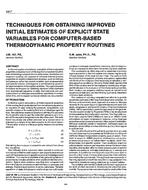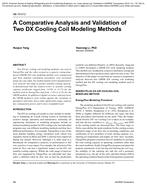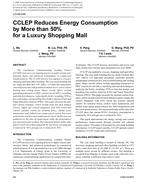This paper proposes a data-driven analysis method to detect abnormal energy data using the recursive least squares (RLS) filter and the cumulative sum (CUSUM) test. This model-based method compares the value predicted by a reference model estimated with the RLS filter and the actual value, and the CUSUM test gives an alarm if the difference exceeds the prescribed threshold. In this paper, the method is applied to the whole-building energy balance load (EBL) analysis using outdoor-air temperature and latent load variables on a daily basis. The ratios of the root-mean-square error (RMSE) of the RLS filters to the RMSE of the regression solutions for 15 sample buildings during a one-year period range from 0.69 to 0.97. In the two case studies, the temperature drift of a chilled-water meter was detected on the fourth day, and disabled occupied/unoccupiedHVACschedules were detected on the seventh day after the problems started to appear. Updating reference models to account for dynamic use and operations of buildings has been a challenge in the implementation of the existing model-based fault-detection methods. The proposed method can track time-varying parameters automatically and requires less effort to maintain the prediction performance of the reference models.
Citation: ASHRAE Transactions – Volume 121, Part 1, Chicago, IL
Product Details
- Published:
- 2015
- Number of Pages:
- 13
- File Size:
- 1 file , 3.6 MB
- Product Code(s):
- D-CH-15-031


